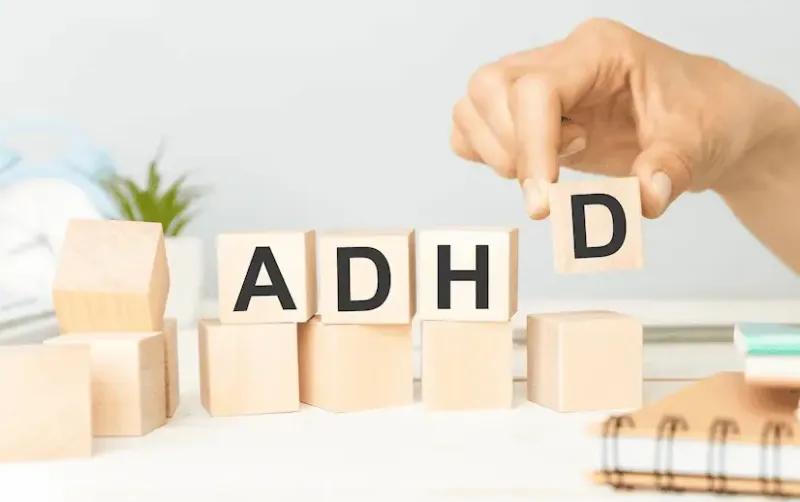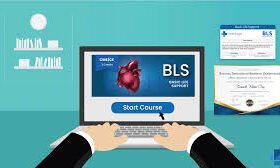Attention Deficit Hyperactivity Disorder (ADHD) is a neurodevelopmental disorder that affects millions of children and adults worldwide. People with ADHD often struggle with inattention, hyperactivity, and impulsiveness, making it difficult to focus, stay organized, and manage daily tasks. Thankfully, ADHD therapy offers a variety of tools and strategies that can help individuals manage their symptoms, improve their quality of life, and thrive in everyday situations.
In this article, we will explore what ADHD therapy involves, the different approaches to treatment, and how therapy can positively impact both children and adults with ADHD.
What is ADHD Therapy?
ADHD therapy refers to a range of therapeutic approaches used to treat the symptoms of ADHD. While medication, such as stimulants and non-stimulants, is commonly prescribed to manage symptoms, therapy plays an equally crucial role in helping individuals cope with the challenges of ADHD. The primary goal of ADHD therapy is to provide behavioral and emotional tools that help individuals with ADHD improve their focus, organization, and self-control.
There are several types of ADHD therapy, including Cognitive Behavioral Therapy (CBT), Behavioral Therapy, Parent Training, and Social Skills Training. These therapies can be tailored to the individual’s age, symptoms, and personal circumstances to offer the most effective support.
Types of ADHD Therapy
The treatment of ADHD is multifaceted, and the right therapy depends on an individual’s unique needs and challenges. Here’s a breakdown of the most common and effective forms of ADHD therapy:
Cognitive Behavioral Therapy (CBT)
Cognitive Behavioral Therapy (CBT) is one of the most commonly used therapies for treating ADHD, especially in adults. CBT focuses on changing negative thought patterns and behaviors that can worsen ADHD symptoms, such as procrastination, disorganization, and impulsivity.
CBT helps individuals identify problematic behaviors and thought processes, teaching them how to reframe negative self-talk and develop healthier habits. Through CBT, individuals with ADHD can learn skills to manage distractions, improve time management, and better regulate their emotions.
Behavioral Therapy
Behavioral therapy is often recommended for children with ADHD, but it can be beneficial for adults as well. This type of therapy focuses on teaching individuals how to replace negative behaviors, such as impulsiveness or inattentiveness, with positive ones.
For children, behavioral therapy often involves working closely with parents and teachers to create structured environments that encourage good behavior. Techniques such as positive reinforcement, token systems, and clear rules are often employed to help children improve their focus and self-control.
Adults can also benefit from behavioral therapy by learning strategies to manage their symptoms more effectively, such as setting up routines, breaking tasks into smaller steps, and using external reminders.
Parent Training in Behavior Management
For parents of children with ADHD, Parent Training in Behavior Management is an essential part of the therapeutic process. Parents play a critical role in their child’s development and can significantly impact how well their child manages ADHD symptoms.
Parent training programs teach parents specific strategies to support their child’s behavior, create consistent routines, and handle disruptive behaviors effectively. The goal is to equip parents with the tools to reinforce positive behavior, implement structure, and reduce problem behaviors at home and in school.
Social Skills Training
Social Skills Training is particularly helpful for children and teenagers with ADHD who may struggle with peer relationships, social cues, or emotional regulation. Individuals with ADHD often find it challenging to navigate social situations due to impulsivity or inattentiveness, which can lead to misunderstandings or conflicts with peers.
Through social skills training, individuals learn how to engage in positive social interactions, understand social norms, and regulate their emotions in group settings. This form of therapy can significantly improve communication skills, empathy, and conflict resolution.
Executive Function Coaching
Executive function coaching is a type of therapy specifically designed to help individuals improve executive functioning skills, which are often impaired in people with ADHD. These skills include time management, organization, planning, and decision-making.
An executive function coach works one-on-one with individuals to create personalized strategies for improving focus, meeting deadlines, staying organized, and achieving personal goals. This type of coaching is especially beneficial for older teens and adults managing the demands of work or school.
The Benefits of ADHD Therapy
Engaging in ADHD therapy offers numerous benefits that go beyond just managing symptoms. Here are some of the most significant advantages of therapy for individuals with ADHD:
1. Improved Focus and Attention
Therapy helps individuals with ADHD develop practical strategies to stay focused on tasks and reduce distractions. This is particularly important for both children struggling in school and adults managing work or personal responsibilities.
2. Enhanced Time Management Skills
One of the core challenges of ADHD is poor time management, leading to missed deadlines, procrastination, or disorganization. Through therapy, individuals can learn how to prioritize tasks, break projects into smaller steps, and create schedules that work for them.
3. Better Emotional Regulation
ADHD is often associated with difficulty managing emotions, leading to frustration, anger, or impulsive outbursts. Therapy helps individuals develop techniques to regulate their emotions, manage stress, and respond to challenges in a more balanced way.
4. Stronger Social and Communication Skills
Therapies like social skills training help children and adults with ADHD improve their relationships with others by teaching them how to communicate more effectively, listen actively, and handle conflicts without reacting impulsively.
5. Increased Self-Esteem and Confidence
Individuals with ADHD often experience low self-esteem due to ongoing struggles with focus, organization, or relationships. Therapy can provide a sense of empowerment, helping individuals gain confidence in their abilities and learn how to overcome challenges.
6. Reduced Symptoms of Comorbid Conditions
Many individuals with ADHD also experience co-occurring conditions, such as anxiety, depression, or learning disabilities. Therapy can help address these comorbid conditions, providing a more holistic approach to improving mental health and well-being.
ADHD Therapy for Children vs. Adults
While ADHD therapy is beneficial for individuals of all ages, the approach to treatment differs slightly between children and adults. Here’s how therapy is tailored based on age:
ADHD Therapy for Children
Children with ADHD often benefit from behavioral therapy, parent training, and social skills training. In school settings, therapists may also work with teachers to implement classroom interventions, such as seating arrangements, timed breaks, and positive reinforcement systems.
For children, therapy typically focuses on managing hyperactivity, improving focus in academic settings, and teaching self-control. Parent involvement is a crucial part of the process, as parents provide the consistency and structure needed for successful outcomes.
ADHD Therapy for Adults
For adults with ADHD, therapy often involves a combination of CBT, executive function coaching, and medication management. Adults with ADHD may struggle with procrastination, job performance, relationship issues, and emotional regulation. Therapy focuses on creating practical strategies for managing these challenges, improving time management, and building resilience.
Adults may also seek therapy for co-occurring conditions, such as anxiety or depression, which can worsen ADHD symptoms. Through therapy, adults can learn how to build better habits and achieve personal or professional goals.
How to Know if You Need ADHD Therapy
If you or your child are struggling with symptoms of ADHD, therapy may be an effective way to improve focus, behavior, and overall quality of life. Here are some signs that ADHD therapy could be beneficial:
- Difficulty staying organized or completing tasks: Are you constantly missing deadlines or feeling overwhelmed by daily responsibilities?
- Struggles with focus and attention: Is it hard for you or your child to concentrate, stay on task, or follow through with instructions?
- Emotional outbursts or impulsivity: Do you experience frustration, impulsivity, or difficulty managing emotions in social or work situations?
- Challenges in school or work performance: Are ADHD symptoms impacting performance at school or in the workplace, leading to stress or poor outcomes?
- Strained relationships: Are ADHD symptoms affecting your ability to maintain healthy relationships with family, friends, or coworkers?
If any of these signs resonate with you, seeking ADHD therapy can help you or your child gain control over symptoms and lead a more balanced life.
Finding the Right ADHD Therapist
Choosing the right therapist for ADHD therapy is crucial for achieving positive results. Here are some tips for finding a qualified ADHD therapist:
- Experience and Training: Look for therapists who specialize in ADHD and have experience working with children, teens, or adults with ADHD.
- Therapeutic Approach: Different therapists use different approaches, such as CBT, behavioral therapy, or coaching. Choose a therapist whose approach aligns with your needs or your child’s challenges.
- Comfort and Trust: Therapy is a personal process, so it’s important to find a therapist you or your child feel comfortable with. Building trust with your therapist can lead to more effective outcomes.
- Accessibility: Many therapists offer both in-person and online therapy options, allowing you to choose a format that works best for your schedule and lifestyle.
Complementary Strategies for Managing ADHD
In addition to therapy, there are other strategies that can support the management of ADHD symptoms:
1. Establishing Routines
Creating structured daily routines can help individuals with ADHD stay organized and reduce stress. Using planners, setting alarms, and breaking tasks into smaller steps can improve productivity.
2. Exercise and Physical Activity
Regular physical activity has been shown to reduce hyperactivity and improve focus in individuals with ADHD. Activities like walking, yoga, or team sports can provide an outlet for excess energy and boost mood.
3. Mindfulness and Meditation
Practicing mindfulness or meditation can help individuals with ADHD improve attention and emotional regulation. Techniques like deep breathing or guided meditation can help calm the mind and reduce impulsive reactions.
4. Healthy Diet
A balanced diet that includes lean proteins, whole grains, and plenty of fruits and vegetables can support brain function and energy levels. Limiting processed foods, sugar, and caffeine may also improve focus and behavior.
Conclusion: Empowering Individuals Through ADHD Therapy
ADHD therapy offers a powerful set of tools to help individuals of all ages manage their symptoms and lead fulfilling lives. Whether it’s improving focus, developing better organizational skills, or learning how to regulate emotions, therapy plays an essential role in the journey to better mental health.
If you or a loved one is struggling with ADHD, seeking professional support can provide the structure, guidance, and coping mechanisms needed to thrive. Reach out to a qualified ADHD therapist today to start your path to better focus and improved quality of life.















Leave a Reply